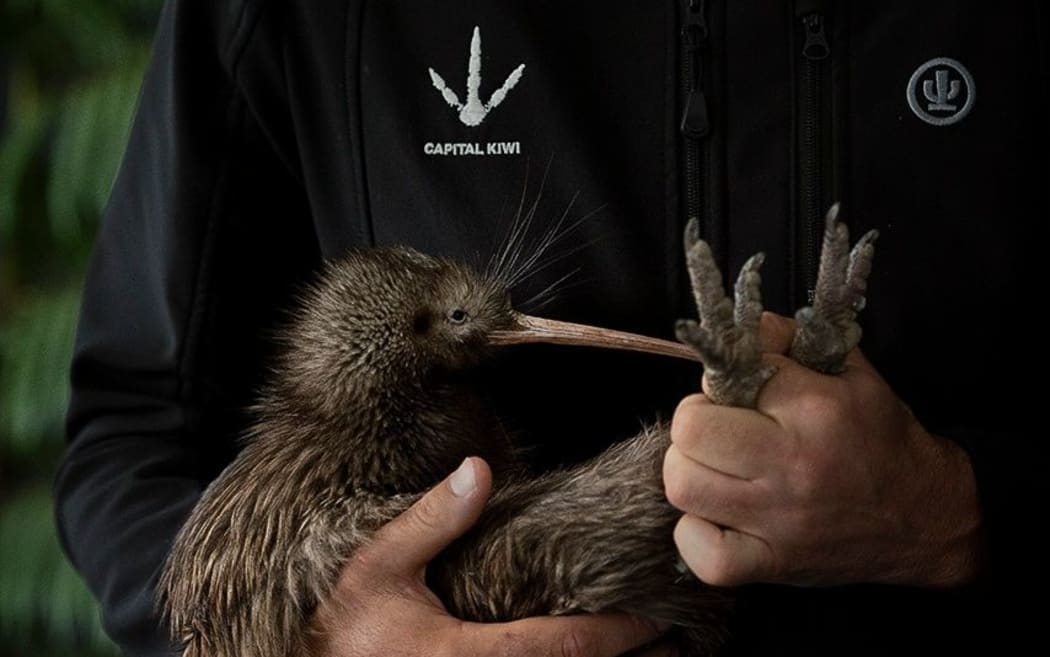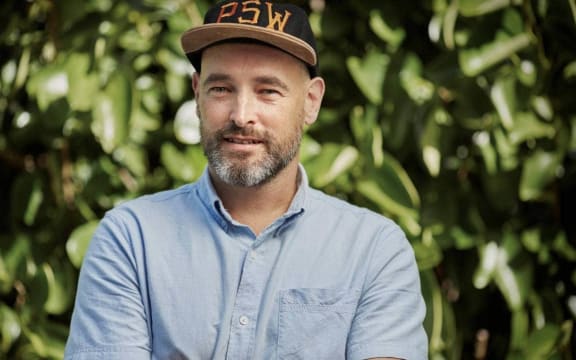A wild kiwi egg has been laid in Wellington for the first time in more than 100 years.
Last November, 11 North Island brown kiwi were released into the Mākara hills after an ambitious pest eradication project.
Project leader, Capital Kiwi's Paul Stanley Ward, said they had been followed weekly through transmitters on their legs.

Capital Kiwi’s Pete Kirkman with Tangaroa (a young tāne) Photo: Neil Hutton
The team were interested in looking at the welfare of the birds in that environment, he said.
"We're wanting to know that they're happy in the wild, some of these birds have been in a captive environment for most of their life."
The birds are doing well and gaining weight, he says.
“What we're really stoked is that most of those birds have actually put on weight. Including the biggest gainer is a bird called Wairoa and he's put on 400 grams, which is over two months that's nearly half a kilo on weight.”
Ward said the birds were all accounted for at present, eating well, and in an exciting discovery, an egg was found in a recent check-up.
During checks Tuesday a Capital Kiwi worker was checking a pair, Whiro and Taina.
“They have made their homes in a big macrocarpa patch next to it next to a swamp and when he was putting his hand on to pull out the dad, Whiro, he felt next to the leg the shape of an egg.”
"That is our first wild kiwi egg on those hills in a very long time. For the team and for the hundreds of landowners, the locals, and the iwi mana whenua who have supported this project it's some pretty sweet news for the new year."
“It just indicates how much they are thriving out there,” Ward says.
The groundwork of making the area predator free was huge effort, he says.
“We've delivered 4500 stoat traps across an area that's nearly 24,000 hectares in size.

Capital Kiwi CEO Paul Stanley-Ward. Photo: Supplied
“So that's just a little bit bigger than Abel Tasman National Parks for perspective. It’s not a national park, it's not a regional park, all these people have committed to determining that these hills should be the home of kiwi rather than stoats.
“So, we've taken out around 1000 stoats from that landscape and while it's not stoat free, it's certainly at the level of which we have confidence that we can get those kiwi chicks up to fighting weight and build a growing population.”
The last recorded kiwi in the region was in the Tararua Range in about the mid-1870s, Ward said.
"As our kiwi managers will tell us - you can't count your kiwi until they hatch but it is a significant moment and something that we're very excited about."

